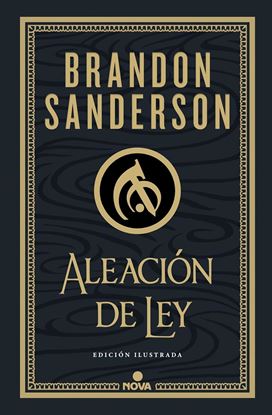

EL PROFETA (EDICION ILUSTRADA)
Una fábula espiritual que llega al corazón, bellamente ilustrada.
A través de veintiséis preciosas lecciones de vida, Almustafá ofrece una visión rebosante de luz y de trascendencia sobre temas tan importantes y atemporales como el amor, la pasión, el trabajo, la belleza, la libertad, el dolor, la razón o la muerte.
Un testimonio indispensable para todos aquellos que buscan sabiduría, paz, esperanza y un sentido al mundo de hoy.
1,800
INSOLACION (TD)
Obra maestra pionera y reivindicativa de una de las escritoras más importantes de la literatura europea del siglo XIX.
En el Madrid de finales del siglo xix, Asís Taboada, joven viuda del marqués de Andrade, vive un intenso debate interno sobre la atracción y el deseo que siente hacia el cautivador Diego Pacheco durante las fiestas de San Isidro.
Con Insolación, Emilia Pardo Bazán fue más allá del naturalismo para adentrarse plenamente en la novela realista más psicológica y transgredir los rígidos preceptos de la moral imperante de la época. El resultado es una novela corta pero muy poderosa, que no solo demuestra el enorme talento de la autora gallega, sino que también representa un grito liberador ante las restricciones sociales de las mujeres en un sistema abrumadoramente patriarcal.
Complementa esta edición una selección de relatos breves que plasman la modernidad y la amplitud estilística y temática de Pardo Bazán.
1,800
ALEACION DE LEY (WAX & WAYNE ILU 1)
Han transcurrido trescientos años desde los acontecimientos de la Trilogía Mistborn. Kelsier y Vin han pasado a formar parte de la historia y la mitología, y el mundo de Scadrial se halla a las puertas de la modernidad. En las tierras fronterizas conocidas como los Áridos, las antiguas magias son una herramienta crucial para quienes defienden el orden y la justicia.
Uno de esos vigilantes de la ley es Waxillium Ladrian, un excepcional nacidoble capaz de empujar metales con su alomancia y utilizar la feruquimia para volverse más ligero o pesado a voluntad. Tras veinte años en los Áridos, una tragedia hace que Wax regrese a la metrópolis de Elendel. Allí tendrá que renunciar a sus pistolas y asumir sus obligaciones como líder de una casa noble. Pero cuando una banda de alomantes comienza a asaltar trenes y secuestrar a personas, Wax tardará poco en descubrir que las mansiones y las elegantes avenidas arboladas de la ciudad pueden ser más peligrosas que las arenosas llanuras de los Áridos.
1,800











